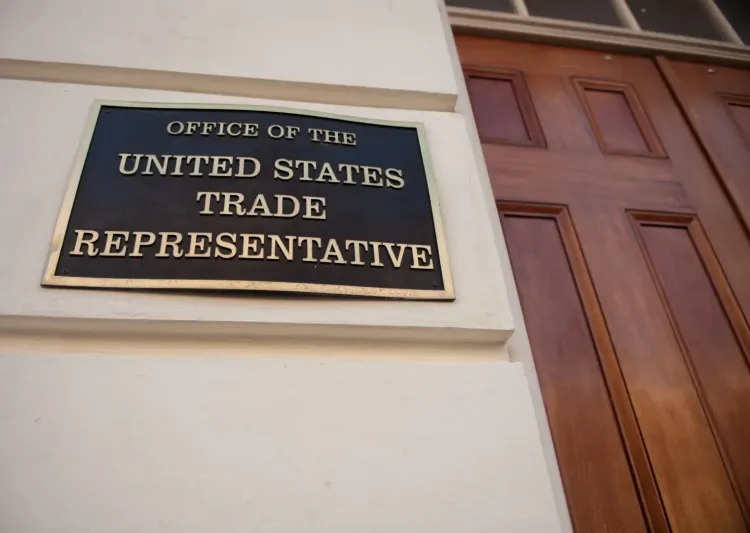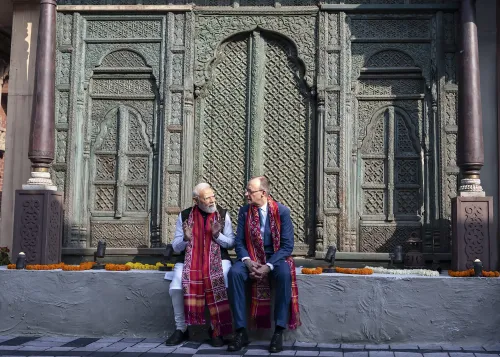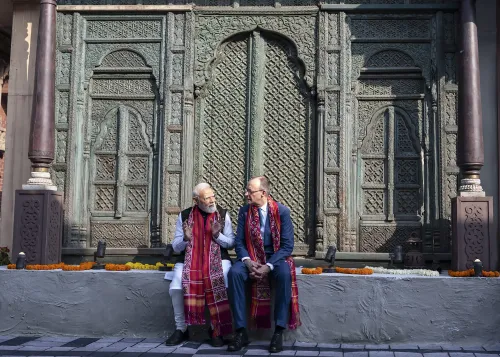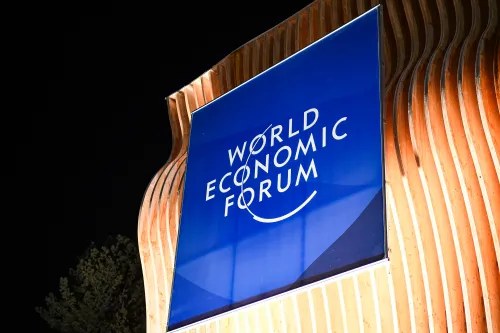How Did S. Korea and US Tariff Talks Alleviate Uncertainty?

Synopsis
Key Takeaways
- Tariff talks have eased uncertainties.
- Framework for future negotiations established.
- Agreement on comprehensive trade package by July 8.
- Political landscape in South Korea is a factor.
- Direct communication channels exist between financial authorities.
Seoul, April 27 (NationPress) South Korea's Finance Minister Choi Sang-mok stated on Sunday that discussions held last week with the United States regarding its comprehensive tariff strategy have significantly alleviated uncertainties and paved the way for orderly consultations.
Choi made these comments upon his arrival at Incheon International Airport, located west of Seoul, following his trip to Washington, where he, along with Industry Minister Ahn Duk-geun, engaged in trade discussions on Thursday with U.S. Treasury Secretary Scott Bessent and U.S. Trade Representative (USTR) Jamieson Greer, as reported by Yonhap news agency.
"We have clarified the discussions and established a framework for future negotiations after agreeing on a schedule for discussion," Choi remarked. "We have minimized uncertainty and created an opportunity for structured discussions moving ahead."
During the meeting, both countries consented to collaborate towards formulating a comprehensive agreement regarding new U.S. tariffs and economic cooperation matters by July 8, the date when the 90-day suspension of the Trump administration's extensive tariffs is expected to conclude.
Choi further emphasized that he thoroughly communicated South Korea's political context and the necessity for collaboration with the National Assembly concerning the tariff discussions.
Currently, South Korea is facing a political leadership void due to the impeachment of former President Yoon Suk Yeol following his unexpected martial law declaration, with a presidential election slated for June 3.
Choi pointed out that Seoul and Washington are positioned to engage in constructive discussions regarding foreign exchange matters, as both nations maintain direct and regular communication channels among their financial authorities.
Meanwhile, the USTR indicated that South Korea and the United States have agreed to pursue swift and substantial progress towards reciprocal and balanced trade during a bilateral meeting the previous day in Washington.
In a readout, the USTR's office described the meeting between Greer and Duk-geun as productive. Both parties convened as Seoul seeks to obtain exemptions from the Trump administration's reciprocal and sectoral tariffs.
"During this fruitful meeting, Ambassador Greer highlighted the priorities of President Trump's America First Trade Policy, and both parties acknowledged the significance of achieving timely and meaningful progress toward reciprocal and balanced trade between the United States and South Korea," the office noted.
"The ministers deliberated on the next steps for USTR and MOTIE and instructed their teams to engage in technical discussions next week," it added.










